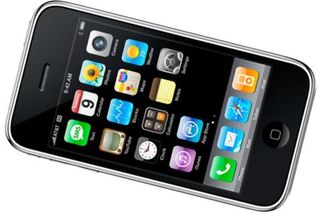iPhone sales top a million, despite launch woes
The iPhone 3G gives cause for Apple to celebrate, despite some customers expressing frustration at activating their devices.

Apple Inc has sold over one million of its iPhone 3G handsets since its launch last week, despite customers reporting problems in activating their devices.
Sales of the next generation iPhone have outstripped that of its predecessor, according to Apple's chief executive Steve Jobs.
"iPhone 3G has a stunning opening weekend. It took 74 days to sell the first one million original iPhones, so the new iPhone 3G is clearly off to a great start around the world," he said.
The new iPhone combines all the features of its predecessor, while also including access to 3G mobile networks, integrated GPS and updated iPhone 2.0 firmware.
The other launch on Friday was the new applications store. Apple said that iPhone and iPod touch users have downloaded more than 10 million applications from the new App Store since its launch last week.
"The App Store is a grand slam, with a staggering 10 million applications downloaded in just three days," added Jobs in his statement.
Developers created a range of mobile applications to entice customers, including games, location-based social networking, medical applications and enterprise productivity tools. Over 800 native applications are now available from the App Store.
Get the ITPro. daily newsletter
Receive our latest news, industry updates, featured resources and more. Sign up today to receive our FREE report on AI cyber crime & security - newly updated for 2024.
However, Apple's success will come as little comfort to customers who queued for hours to get hold of one of the first batch of iPhone 3Gs, only to be left disappointed without a handset or unable to activate their new device.
Despite being told that it would only take 15 minutes to activate their devices, many customers experienced activating difficulties once they downloaded the new software.
In the US, operators blamed problems synchronising the phone with Apple's iTunes online music and software store, saying it was probably caused by huge numbers trying to access the application at the same time.
Meanwhile, customers in the UK also experienced delays in connectivity, due to a glitch in the computerised credit checking system belonging to O2, the UK carrier of the iPhone.
With files from Reuters




